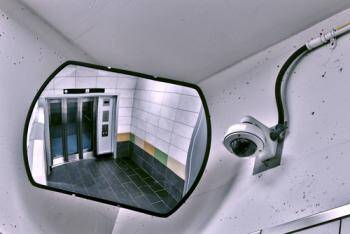Over the last month I’ve been talking a lot about personally controlled records and the ownership of your own information. (For more background, see last month’s post and a discussion I took part in on ABC radio.)
Over the last month I’ve been talking a lot about personally controlled records and the ownership of your own information. (For more background, see last month’s post and a discussion I took part in on ABC radio.)
 The strength of the response reinforces to me that this is an area that deserves greater focus. On the one hand, we want business and government to provide us with better services and to effectively protect us from danger. On the other, we don’t want our personal freedoms to be threatened. The question for us to ask is whether we are at risk of giving up our personal freedom and privacy by giving away our personal information.
The strength of the response reinforces to me that this is an area that deserves greater focus. On the one hand, we want business and government to provide us with better services and to effectively protect us from danger. On the other, we don’t want our personal freedoms to be threatened. The question for us to ask is whether we are at risk of giving up our personal freedom and privacy by giving away our personal information.
I couldn’t help but think about that most obvious of literary works: George Orwell’s 1984. Like many teenagers of my generation, I read the book for the first time in 1984 right at the peak of the Cold War. My overwhelming feeling was one of cultural arrogance: Orwell had gotten it wrong and the story did not apply to my society even though it probably was relevant for others.
In 2013 we are nearly as far from the year 1984 as George Orwell was when he wrote the book in 1948. Arguably, as much has happened since 1984 as had occurred between 1948 and 1984. The book introduces many interesting ideas including “telescreens”, “thoughtcrime” and “newspeak”. While the forces that Orwell wrote about have not been the driver for these concepts to come to reality, much of their essence may well have slipped into our society without us noticing.
The ubiquitous telescreen of the book was a frightening device that combined a television with a camera which allowed authorities to watch what you were doing at all times. While the technology has been around since Orwell himself, it really hasn’t been until the rise of the smartphone that constant monitoring has become possible.
While we aren’t being monitored visually, we are increasingly giving away large amounts of personal information in terms of our location. Worse, it is starting to become a suspicious act when we choose to take ourselves off this form of tracking for a period of time. To see how this is playing out in the courts, just look at criminal trials where the defendant is asked to justify why they’ve turned their phone off at the time of a crime taking place.
In the 1984 that we all experienced, freedom of thought was entrenched through institutions such as a free press and free libraries supporting research without fear of surveillance. By 2013, many of these institutions have either moved online entirely or are well on their way to doing so. Far from providing the protection of a library system that ensured complete confidentiality of research topics, any government can see what interests most of its citizens choose to pursue through Wikipedia or any other research tool.
The Orwellian concept of thoughtcrime assumed that there was some sort of hint at unconventional thoughts that could be a risk to their society. It is easy to see that today’s governments could come to the same conclusion using the tools of the internet to identify what they deem to be antisocial interests.
Finally, newspeak was the language that the shadowy rulers of 1984 were creating to dumb-down the population and discourage thoughtcrimes. While it might be a stretch, it is staggering to see how the short-form of modern messaging such as Twitter is encouraging a simplification of our language which is finding its way into the mainstream.
It is easy to write a post that claims conspiracies at every turn. Far from arguing a major government plan to undermine our freedom, I thought that it was interesting to see that many of George Orwell’s fears are coming true. The cause is not an oppressive government but rather an eagerness by the population as a whole to move services onto new platforms without demanding the same level of protection that their previous custodians have provided for a couple of centuries or more.
(image: Big Data, or Big Brother? / shutterstock)







